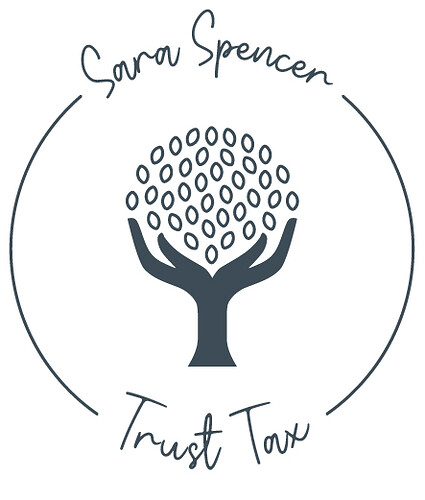Hi Mike
Several questions spring to mind here. Forgive me if I have misunderstood anything in your initial post.
I assume this is a discretionary trust as step-mother B is “Primary Beneficiary” as well as trustee with her two step daughters.
Does B have capacity to be a Trustee (you mention she is in long term care which at least raises the question)?
In the event of B’s death you understand (but presumably do not know) that the two daughters are the “next beneficiaries”. I take it from this that you have not seen the Will setting out the terms of the trust. You cannot advise if you have not seen that. I am not sure what your role is but presumably not a private client solicitor or other trust specialist (eg STEP member).
Are the settlor’s two daughters (as the “next beneficiaries”) perhaps remaindermen with B in fact having a life interest rather than simply being a discretionary beneficiary? Or was B stated to be considered the primary discretionary beneficiary during her lifetime (which doesn’t mean the other beneficiaries can’t benefit in that time).
Assuming B has capacity, then I am not sure what business the trust investment is of B’s sister, who is neither trustee nor beneficiary (or is she a beneficiary)? That said you mention B’s sister being removed, which would imply she is a trustee.
If B has capacity to understand the trust’s financial position, is well looked after and receives what she wants / needs from the trust, and the fund is likely to see her out, then it is B’s two step-daughters (and possibly other beneficiaries) who are the ones to be concerned about investments, and whether there will be anything left for them. On the other hand, if B’s needs are not being met then that is another matter, but you do not mention this to be the case.
I presume this “financial consultant” (not a financial adviser? – are they regulated?) you mention looks after B’s sister’s investments, hence them offering their opinion. Without knowing the size of the trust (you only mention it is over IHT allowances) it is not possible to comment on the fees.
The trust is currently partly held in cash ISA’s - presumably the father’s estate is still being administered and these just haven’t been encashed yet. Trusts cannot hold ISA’s which are for individuals (Individual Savings Account). I am not sure what you mean by adding surety to the funds. Cash carries the often ignored risk of being eaten away by inflation, and that risk is ever growing at the moment. If B’s needs could be met from income generated by a well invested balanced portfolio, and the two daughters would intend to keep the investments when she died, then the trustees may well be justified in investing in equity based assets. On death their base cost for CGT would be uplifted to the value at the date of B’s death if it is a life interest trust, and the assets could be transferred in specie to the remaindermen. If it’s a discretionary trust then on B’s death the assets can if wished be passed out using capital gains hold over relief to defer tax until eventual sale by the daughters. In both instances IHT is likely to be payable from what you say.
Any legal/tax/investment advice needs to take into account (amongst other things) B’s financial circumstances, her mental capacity, and whether the trust is an IPDI/QIIP or a discretionary trust. If it will be aggregated with her estate and she has significant assets of her own, plenty to cover her foreseeable needs, then could there be some IHT planning with some trust assets being passed to the two daughters sooner rather than later (terms of the trust permitting). If the trust assets are in cash (as they seem to be from your comments) then no CGT would arise.
If B doesn’t have capacity then she may need to be removed as a trustee. Certainly there could be no changes to the trust investments, and I would imagine the funds could not be accessed if she could not give her agreement to expenditure/distributions. If she has a life interest then it is my understanding that an application to the court will be needed to remove her, to ensure her interests are protected.
The trustees as a body (who do not appear to be in dispute amongst themselves) need to find a good local private client solicitor who specialises in trusts. They can advise on the legal aspects, and will then be able to introduce you to a decent trust specialist Financial advisor/stockbroker who can advise on a suitable investment strategy based on all the beneficiaries’ circumstances. It is not an option to retain the status quo. The trustees are not at the moment meeting their duty to take the necessary professional advice to ensure the trust is properly administered/invested.
I also wonder who dealt with father’s probate – presumably not a solicitor as I would have expected the above to have been addressed by them (unless the execs/ trustees didn’t want to pay). Perhaps that needs looking at too. It sounds to have been a reasonable sized estate – enough to merit a solicitor’s involvement.
This link will help you find a qualified trust advisor https://www.step.org/directory/members.
Good luck
Sara
